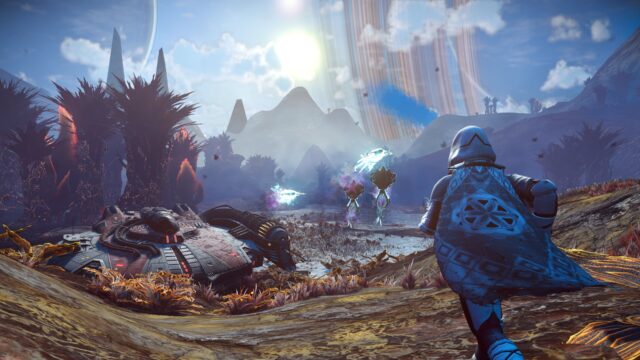/cdn.vox-cdn.com/uploads/chorus_image/image/70054597/image__11_.0.png)
Image: Blizzard Entertainment
Activision Blizzard informed Vicarious Visions employees Wednesday that the studio would lose its name as part of its ongoing merger with Blizzard Entertainment, sources told Polygon.
The studio behind Tony Hawk’s Pro Skater 1 and 2 and work on the recently released Diablo 2: Resurrected was officially merged with Blizzard Entertainment in January. Vicarious Visions had been working with the Overwatch and World of Warcraft publisher for some time, but the official merger meant that its primary focus would shift to “long-term support” of Blizzard games.
Vicarious Visions workers told Polygon that they were initially under the impression the merger meant their employer would continue to operate as its own studio, although it was owned by Blizzard. The news about the name drop came during a town hall meeting on Wednesday morning. A new name for the studio has not been announced, but some workers speculated that it could be simply called Blizzard Albany. (Vicarious Visions’ office is located in Albany, New York. Blizzard typically uses this naming convention for its satellite offices, for example, Blizzard Austin in Texas.)
In August, former Vicarious Visions studio head Jen Oneal was named a co-president of Blizzard Entertainment. (She was named an executive vice president of development at Blizzard during the January merger.)
Polygon reached out to an Activision Blizzard representative about this development. We have not heard back as of publication time.
Most of the Vicarious Visions employees who spoke to Polygon said they aren’t necessarily surprised by the announcement, with one noting that the “writing was on the wall.” But at least one worker was disappointed by the lack of transparency and sudden announcement during a “light and quick” meeting on what employees described as a costume day. Some employees were dressed in Halloween costumes during the call.
Leadership said there were no layoffs currently planned, according to the employees who spoke to Polygon. With the merger already announced and underway, staffers didn’t expect much to change otherwise, but some employees noted that there were still a lot of questions unanswered.
“For all of the leadership’s talk about being more transparent in response to the lawsuit and resulting fiasco, the fact they decided to blindside us all with this feels about as far from transparent as you can get,” an employee told Polygon.
Vicarious Visions was founded in 1991 in Albany, N.Y. by then high-schoolers Karthik and Guha Bala, who today lead Velan Studios, developers of Knockout City for Electronic Arts. The Balas sold the studio to Activision in 2005 and left it in 2016.
Prior to the studio’s formal merger with Blizzard Entertainment, Vicarious Visions had worked on ports for titles like Ultimate Spider-Man, Star Wars Jedi Knight II: Jedi Outcast and Jedi Academy.
Activision Blizzard currently faces wide-ranging allegations that it maintains a toxic workplace environment that’s particularly hostile to women. California’s Department of Fair Employment and Housing (DFEH) investigated the company for two years before filing the lawsuit, and found that women are paid less and subject to sexual harassment, without meaningful punishment applied to perpetrators. In the period since the lawsuit was filed in late July, the DFEH has expanded its complaint to include allegations that Activision Blizzard “suppressed” evidence in its investigation. The company denies that claim.
Activision Blizzard is also currently facing multiple lawsuits and a U.S. Securities and Exchange Commission investigation. One of its lawsuits, filed by the U.S. Equal Employment Opportunity Commission, was settled for $18 million earlier this year.
More than 40 Activision Blizzard employees have been disciplined in the months following the initial DFEH lawsuit. Also in its wake, Blizzard made good on its promise to rename the Overwatch character formerly known as Jesse McCree: He’s now Cole Cassidy.
Workers at the company have continued to speak out on social media and elsewhere to encourage substantial change. You can read more about the allegations against Activision Blizzard in Polygon’s explainer.


